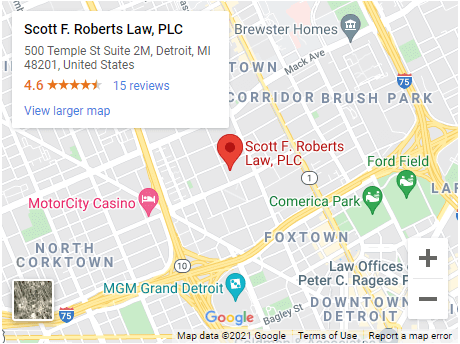In 2013, Michigan passed its own version of the “JOBS Act” crowdfunding exemption called the “Michigan Invests Locally Exemption Act”, or “MILE Act”. There are several differences between these two exemptions, as noted in numerous articles on the subject. One often overlooked difference is that the proposed regulations under the JOBS Act require that crowdfunding is conducted through an intermediary, while the MILE Act does not. This means that Michigan companies do not need to use online intermediaries, which are often referred to as “portals”, in order to raise money through crowdfunding.
So, why use an online portal? There are a number of reasons. One reason is that it handles some of the more complicated aspects of the crowdfunding process, though a knowledgeable lawyer can do this as well. Another is that it handles the administrative aspects of the process, but again, a well-run legal office is more than capable of handling this aspect. This leaves one final advantage—marketing and promotion. As crowdfunding becomes more popular, more people will likely visit the online portals looking for investment opportunities. In addition, Michigan investors may go to a portal in order to invest in one Michigan business only to discover another, better business to invest in.
Like anything in business, these benefits come with a cost. The use of a crowdfunding portal can cost a company several thousands of dollars in recurring charges. Using one of the more popular portals as an example, we’ll say a company wants to raise $100,000 through 50 investors who are investing $2,000 each. It would cost $1,500 to begin the process, then another $200 for each month the crowdfunding process takes. It would also cost $200 to set up an escrow account, then another $50 for each month the escrow account is set up. There is then a fee per investor that would cost a little over $600 in our example. Once the funding is complete, there is a “closing” fee that would cost the company another $1,500. Assuming this example funding takes 6 months to fully fund the offering, the cost of using the portal would be approximately $5,300.
This begs the question—is an online portal worth the cost? My answer, which I’m sure business owners will recognize as typical “attorney speak”, is that “it depends.” For offerings greater than $1,000,000, the answer is clear—the marginal costs of the offering are clearly worth the benefits the company receives when using an online portal. For smaller companies, such as the company in our example, the answer may be no. Much depends on the ability of the company to market its offering, which in turn depends on the nature of the business and the experience of the company’s employees and owners.
One of Scott Roberts Law Firm’s current clients is about to undertake a MILE Act crowdfund without the use of an online portal. Because the company has an experienced marketing person already on staff and Scott Roberts Law Firm will be handling both the legal and administrative aspects of the crowdfunding on a set fee basis, there was no need for an online portal. This will save the client a lot of money—and the same process could save your business a lot of money too.
Do you want help navigating the best way to legally fund your business?
Call us at (248) 234-4060 to schedule your free consultation today!




